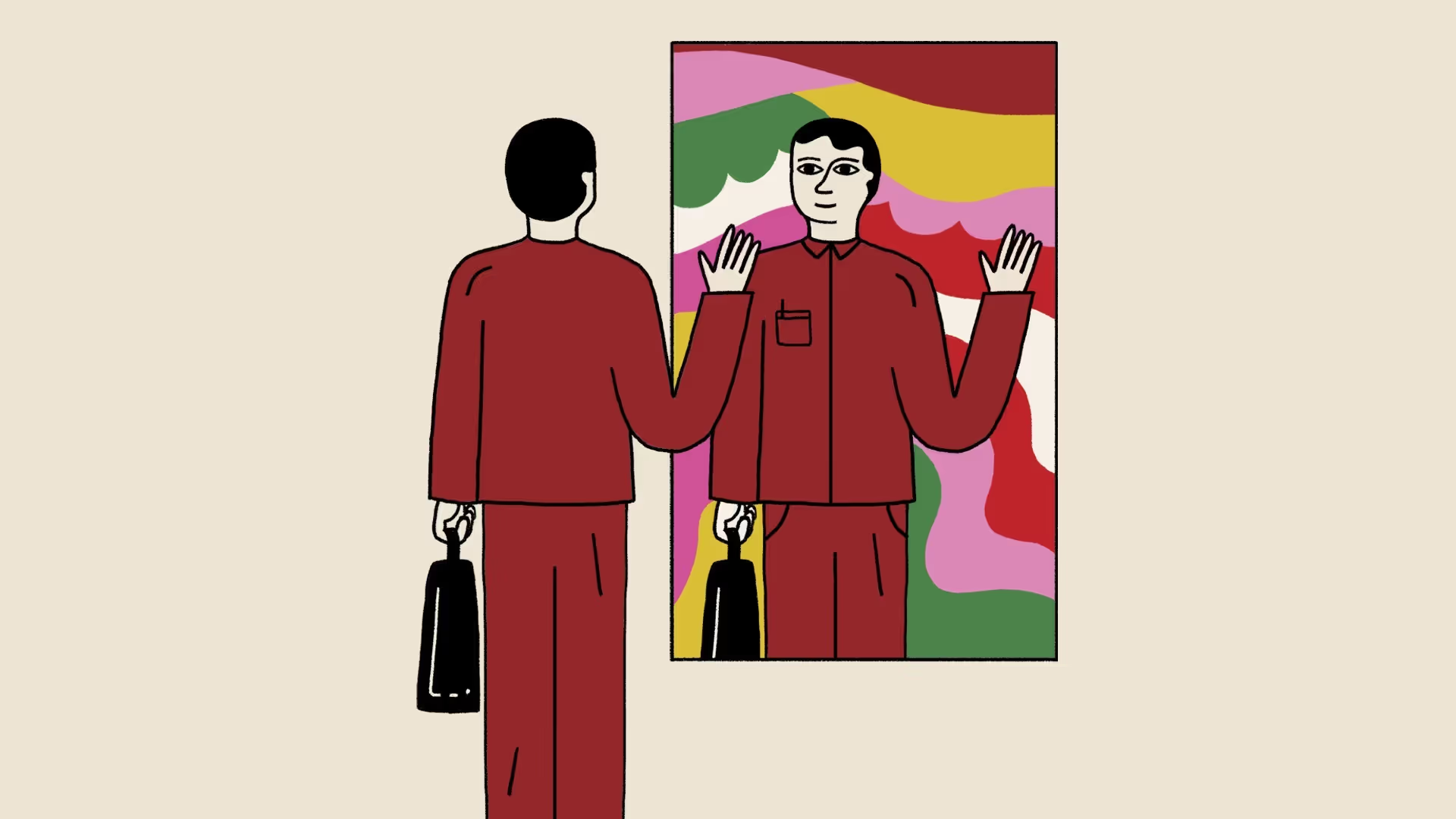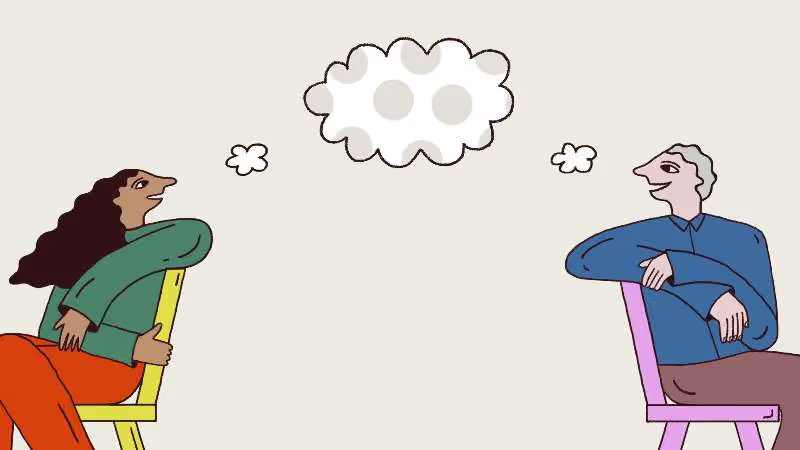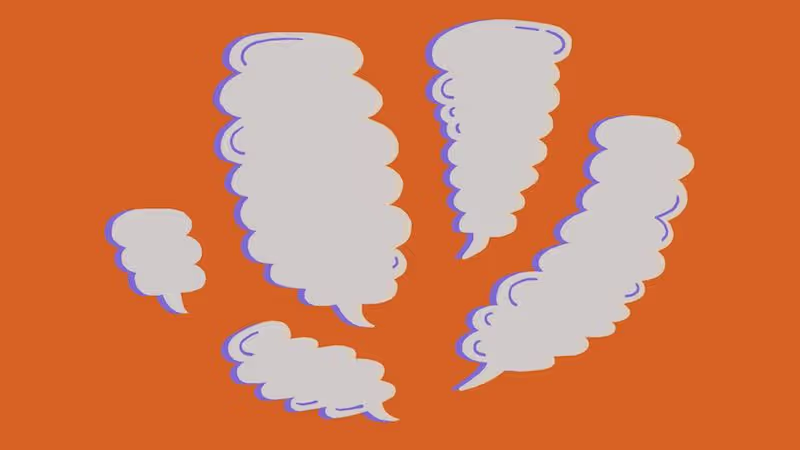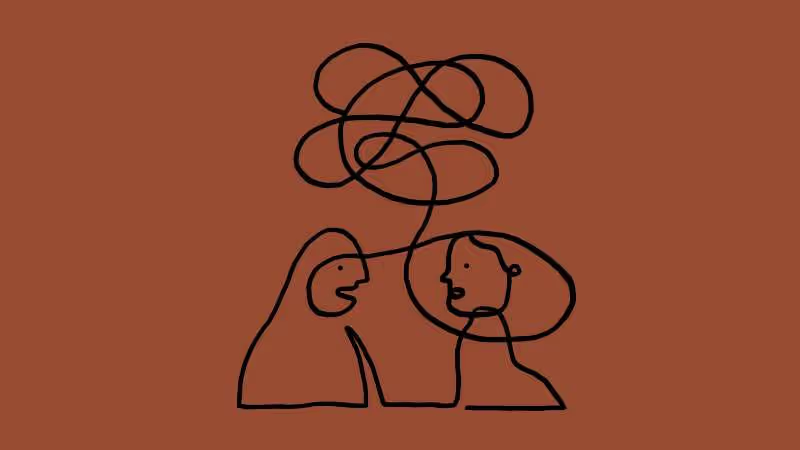Shall We Begin?
Recently, I invited my friends David Adam Moore and Vita Tzykun to visit me and my husband for a socially-distanced evening around our outdoor fire pit. It was freezing but I was determined to connect with my friends. As I wrapped myself in layer upon layer, wool and flannel and mittens and scarves, I thought about all of the questions I wanted to ask David and Vita about how the pandemic standstill has affected them, their relationship, and their work.
David and Vita are highly-accomplished in the performance world—David as an opera singer and Vita as a designer and director. For as long as I’ve known them, they’ve been globe-trotting from stage to stage, constantly working, and often spending no more than three months together in the same place due to contrasting schedules.
I wanted to ask them all the questions one asks when they haven’t seen dear friends in a year. As I ladled homemade vegetable soup into bowls to take outside, I realized that all of those questions—How’s work? How’s your family? How’s the house?—have transformed in the context of this year. What if work is really bad because theaters have shut down? What if they lost a family member to Covid-19? What if they lost their home? Or what if the home they love has become a cage? As we huddled in our pairs around the fire, I realized that what I really wanted to ask was how has this crisis made you reevaluate your lives?
David and Vita, it turns out, had spent the last year “decoupling from their identities”—trying to find out who they each were when their external markers of success were forcibly stripped away due to the pandemic. As I listened to them, I thought about how many of us have had a similar experience this year without words to describe it. For David and Vita, it began with getting “thrown off the hamster wheel they didn’t know they were on” when their industry shut down last spring. In a single moment, they instantly lost dozens of projects. On opposite sides of the world, they caught the last flights available and reconvened at home—a place they hadn’t spent much time together since they moved in the previous year.
At home, they assessed the damage. “It seemed like everyone's career just got zeroed out, particularly the freelancers,” David explained. “And the administrators were handed the unenviable task of trying to keep organizations afloat.” They weren’t surprised to hear colleagues and friends longing to go “back to normal.” David and Vita, however, had come to a different conclusion. As weeks stretched to months, they began to see that the lifestyle they once considered normal wasn’t exactly good for them. Vita kept coming back to a particular memory of seeing a very pale colleague with dark circles under her eyes. She wondered now why her first thought back then hadn’t been “is she okay?” At the time, she scolded herself, “She must be working hard. Maybe I’m not working enough. I have too much free time. I should work harder.” And so she did.
In a world without the opportunity to fill every moment with work, David and Vita began taking long walks outside. Vita started strength training. For the first time in a long while, David started singing for fun. “All of the sudden, I had this laboratory to work on my vocal technique that I had not had before.” They began to take on different types of projects and work with a new mindset. And they began to lament. They remembered the trips they had taken to see family in which they had shut themselves away for hours to work. “I had gotten into these habits of constant anxiety that I would get behind on a deadline or wouldn't have enough future work,” David said. “But I could have taken 10 or 15% less work, easily, and reallocated the time to friends and family and relationships.”
We discussed how this year has revealed the fragility of life and of institutions. For David and Vita, these twin crises sparked a reprioritization that changed the very core of how they live. “This has really caused us to envision many more scenarios in which our friends and family are absolutely vital to our lives—far beyond just having nice conversations,” they shared.
In February 2021, we have very much arrived at a stage which requires us to go beyond just having nice conversations. A social revolution—from little ones to our elders—is occurring under our noses. I have long believed that asking better questions is the key to creating closeness, and not just in my work as a therapist. I love questions so much that, together with my team, I’ve come up with thousands of questions to help reintroduce ourselves to each other. (Some of those are below; others are being made into a new card game.)
Socializing with David and Vita reminded me that the questions we ask each other now have to fit the reality we are living in—that they hold space for our friends’ grief and growth. Socializing is fluid. In all relationships, patterns need to be adaptable. As Vita told me, “I think a question we should be asking each other now is: how has your personal definition of success changed? And what can you do now to stay true to it?”
Let’s Turn the Lens on You
Ask questions that meet people where they are now.
- What was an important change that took place around your relationships this year?
- How did you maintain your connections?
- What do you wish you would have done differently to maintain your connections?
- What are some of your new relationship challenges?
- What is a challenge you’ve overcome this year that felt satisfying?
- What new things have you learned?
- What is a dream that you’ve never said aloud?
- What is something that feels sensitive to talk about now?
- How are you negotiating boundaries at this moment? And reacting to the boundaries of others?
- What are some qualities you’ve come to resent during this time?
- Have your expectations of friends changed?
- Have you had fall outs?
- When someone asks you how you’re doing, what do you say?
- What do you wish you could say?
- Have you found a silver lining?
Let's continue the conversation.
Watch the replay of the Letters From Esther Workshop: The Anti-Small Talk Workshop.
More From Esther
How Erotic Thinking Helps Emotional Connection / a blog article
No matter how effective our routines have been in helping us through the last year, if they’re not filled with creativity, they inevitably leave us numb.
How Eroticism and Fantasy Can Help You Embrace a New Year / a workshop
2020 took a toll on our senses of connection, spontaneity, and energy—facets of what I call "Eroticism. In this workshop, we talk about the power of Fantasy and Imagination to pull us out of the slump.
How Not To Die Alone / a new book by Logan Ury
Over the past year, I've participated in multiple interviews with Logan Ury, behavioral scientist, former TED Resident, and lead relationship researcher at Hinge, for her new book How to Not Die Alone, out 2/2. Her book is a definitive guide for a generation navigating the murky waters of modern love and I'm glad to be a part of it.
Conversation Starters
A compendium of highly recommended sources of inspiration and information.
I’m Reading:
- Suleika Jaouad’s Between Two Kingdoms: A Memoir of a Life Interrupted
- Erica Keswin’s Rituals Roadmap
- Adam Grant’s Think Again: The Power of Knowing What You Don’t Know
I’m Listening To:
- Episode #146 of “The Peter Attia Drive” with Guy Winch, Ph.D: “Emotional First Aid and How to Treat Psychological Injuries”







.svg)





